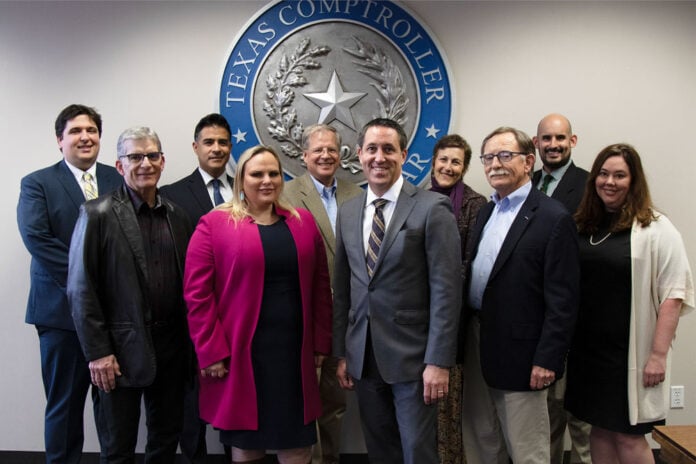(AUSTIN) — Texas Comptroller Glenn Hegar today applauded decisions by the Opioid Abatement Fund Council (OAFC) to approve its first abatement strategies and grant plans as well as adopting proposed rules to distribute opioid settlement funding to Texas hospital districts.
“This week, the OAFC took meaningful, decisive action to fund evidence-based priorities to respond to the raging opioid crisis,” Hegar said. “The grant plans take a multifaceted approach to treat Texans most at risk of overdose, increase substance use prevention and awareness among parents and students, and support our behavioral health workforce. I am proud of these decisions to support Texas children and parents, health care workers, and communities across our state.”
During its regular meeting on Nov. 28, the OAFC approved three strategies and grant plans to respond to the statewide opioid crisis by preventing overdoses with distribution of Naloxone, promoting drug prevention education in schools and communities and strengthening the behavioral health workforce.
Over the next year, these grant plans will:
- Distribute Naloxone, a medication designed to rapidly reverse opioid overdoses, to communities hit by the opioid crisis.
- Promote substance abuse and prevention and awareness for students in grades kindergarten through 12th as well as their parents and caregivers.
- Bolster training, recruitment and retention, and certification assistance for the behavioral health workforce.
The OAFC approved up to $25 million of opioid settlement trust funds to be allocated for each grant plan strategy listed above.
“I want to thank the Council members for their efforts in developing strategies that are designed to have an immediate impact,” said Hegar, who serves as chairman of the OAFC. “I am also pleased that the Council took important action to provide hospital districts with additional resources to combat this crisis. Hospitals in many cases bear a significant burden and often administer the last line of life-saving health care to prevent overdose deaths, so this is a key step in ensuring these facilities can continue and expand their work saving the lives of Texans.”
The OAFC approved proposed rules to guide the fair and equitable distribution of an estimated $166.7 million in opioid settlement funds to more than 150 hospital districts over an estimated 18 years, as directed by state law.
The rules provide for the smallest rural hospital districts to receive a one-time distribution in the initial round of funding. Subsequent rounds of funding will shift to a pro-rata formula for the remaining mid-sized and large urban hospitals. This funding will ensure local hospital districts have additional resources to establish and maintain evidence-based programs to abate the opioid crisis and flexibility to tailor those programs to their communities’ unique needs.
The rules would also protect these vital settlement dollars by providing accountability and transparency for hospital districts’ use of funds they receive. The proposed rules will be published in the Texas Register for public comment and could be adopted as soon as spring 2024.
The Texas Legislature formed the OAFC in 2021 to ensure money recovered through the joint efforts of the state and its political subdivisions from statewide opioid settlement agreements is allocated fairly and spent to remediate the opioid crisis using efficient, cost-effective methods. Last March, Hegar announced a first-round payment of $47.1 million to political subdivisions from the Opioid Abatement Trust Fund to address opioid-related harms in their communities.













